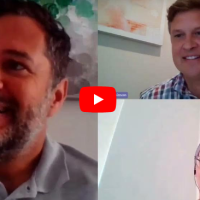LKS Quaero is offering a complete package of Council Transition Support for amalgamating NSW Councils. This is part of a series of interviews in which our transition expert team members pass on some key nuggets of advice.
Peter White is an experienced organisational leader with demonstrated leadership ability and a proven track record in developing employees and creating a constructive culture where working productively and continuous improvement form a way of life. Peter has an electrical engineering background, specialising in large and medium heavy industry environments. He is an Associate for LKS Quaero specialising in training, leadership, and culture. Here is his advice for leaders of amalgamating Councils in NSW.
What are the key leadership and culture challenges in the amalgamations in NSW?
The culture itself will be a big challenge. Many Councils are likely to be experiencing a passive defensive culture, meaning many will be dependent on the leadership to tell them what to do or they will be keeping their heads down, not wanting to be noticed and hoping it will all go away so things can get back to how they used to be.
A silo mentality is also common, where people are only interested in their own “patch”. A common issue here is the belief that knowledge is power, leading people to think ‘I will keep the information to myself so I will be protected’. In order to implement sustainable change, these silos will need to be identified and broken down. This can be achieved through a positive experience, provided the team members have clarity around their futures and are kept well informed of what is happening around them.
New Councils will also have to assess the skill, will, and drill of leaders at all levels. If an organisation needs to transition from the current state to a new desired future state, then it is important to determine if the organisation has the right person in the right role doing the right work. Another way to look at this is to determine if the person has the skill to do the work – have they been adequately trained? Do they have the will – do they want to do the work of the role, are they engaged in the organisation, and are they prepared to deal with difficult issues, including performance management? And finally, do they have the drill (or discipline)? They might have the skill and the will, but do they actually do it religiously every time? Are they walking the walk and talking the talk? Do they clearly demonstrate their commitment through their actions and comments?
Beyond the capability of leaders to deliver change, a major challenge is the uncertainty of what the future holds for individuals throughout the organisation. A lack of role clarity will compound this. For those in temporary roles in particular, there will be some reluctance to make key decisions for the future.
What leadership and culture opportunities should Councils look to seize?
- Ensuring that the right people are doing the right work in the right role. This does not necessarily mean removing people from the organisation, but rather making sure that the complexity of a role is matched to the capability of the individual
- Creating new positive myths: ensuring that negative old chestnuts about “the way things are around here” are put to rest and enabling constructive, positive thinking about the organisation
What would be in your 30 day “leadership and culture action plan” for launching the process?
Following a gap analysis between current state and the desired future state, the improvement actions for the first 30 days would be about ensuring the leaders have the skills to lead their teams through change and might include such things as:
- Provide training in the foundations of leadership so that leaders will know not only how to implement change, but also how to lead their team through the change
- Providing role clarity, including defining levels of work
What else can leaders do to ensure the right leadership and culture decisions are made for the long term?
- Providing the leadership team with clarity around context and purpose for the proposed changes is vital. The leaders have the business context: what needs to change and why. The purpose or end goal of the change must be crystal clear so that decisions are made with this as the background
- Clearly understanding the authorities of each role is important to ensure decisions are being made at the right level
- Establishing an effective communication strategy so that all team members are kept well informed of proposed changes, timing, the why, and the expected outcome.
What should leaders of amalgamating Councils be doing right now to prepare for the transition?
They should develop a comprehensive leadership and cultural transformation plan, which means:
- Understanding the current cultural state in, and challenges ahead for, their area of accountability by conducting an observation of Systems, Symbols, and Behaviour (SSB)
- After some training in Systems Leadership Theory, leaders go out into their work place and look at the systems of work, the symbols in the workplace, and the behaviours of the leaders and team members. Team members are asked a series of questions about what they think of the systems of work that they use and the behavior of their leader. This information is used to help determine the current state culture
- Deciding on the desired future state
- Conducting a gap analysis between current and future state
- Identifying actions to close the gap
- Undertaking a formal change management/risk assessment process
- Developing the communication strategy
- Leading by example, clearly demonstrating commitment to and support for the transition plan
How can you help with the leadership and culture aspects of amalgamations?
At LKS Quaero, we can:
- Train your leadership team in the foundations of leadership to build their capability in leading change
- Help establish a Leadership & Culture Transformation Plan
- Help establish a visual management system to track progress to your plan
At LKS Quaero, we offer support to new Councils across culture and leadership, strategy development, financial analysis and advice, industrial relations, structure and recruitment. Transitioning to a new entity represents a massive opportunity. It’s a chance to re-set the vision, strategy, and culture for a new organisation. At the same time, there are pitfalls to be avoided across all areas of operations. See our Council Transition Support page for more information. If you’d like to know more, visit us at lksquaero.com or follow us on LinkedIn, Facebook, and Twitter.









